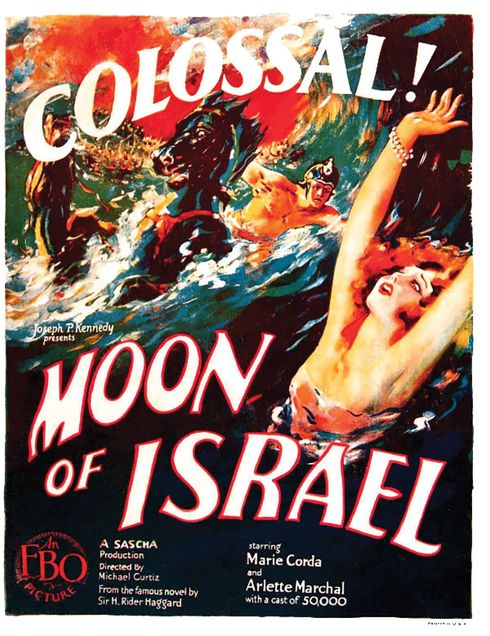“Moon of Israel” Screening with Accompaniment by Gerhard Gruber
Long before directing Casablanca, Austrian director Michael Curtis (known as Mihaly Kertesz prior to working under an Anglicized name), directed a silent Biblical epic directly in competition with Cecil B DeMille’s original The Ten Commandments. His film, Moon of Israel, premiered in 1923 and tells a story of forbidden love between an Israeli slave and an Egyptian prince around the time of the Exodus. Moon is one of the few films of that era to survive in full, thanks to the restoration work of Austrian pianist and accompanist Gerhard Gruber. Gruber joined the Elie Wiesel Center in Kilachand Hall’s event space for a screening of Moon of Israel, where he provided a live score alongside the film. His score, unlike other film scores, is performed entirely improvised. The audience that evening was treated to a version of the film screening that was unlike any other.
The film centers on a young Egyptian prince Seti, unhappy with his arranged marriage to his half-sister Userti and burdened with the responsibilities of a future king. While overlooking the work of the Israelites living in slavery in Egypt, he sees an overseer prey upon a young woman and then takes revenge on her father when she rejects him. Seti punishes the overseer and falls in love with the woman, named Merapi, and they develop a relationship while Moses advocates on behalf of the Israelites to Pharaoh. Their relationship is forbidden, and Seti passes over the throne in order to be with her. The two marry and live together until Seti’s evil brother Amenmeses becomes Pharoah and God’s plagues strike Egypt, killing Seti and Merapi’s firstborn son. Moses leads the Israelites out of Egypt and across the Red Sea, and Pharaoh pursues them before he drowns. The Egyptians, believing Merapi is a witch who cursed Egypt, capture her, and Seti dreams that she is in danger. He arrives too late to the city of Tanis to stop them from sacrificing her. The film ends with him mourning over her body, even while being named the new Pharaoh of Egypt.
Gruber stayed after the film to answer questions and provide some context to the film, pointing out the elaborate costume and sets as well as the performances of the actors. Gruber is one of the few musicians who performs live accompaniment for silent films, and it was a fascinating and special event for all who attended.